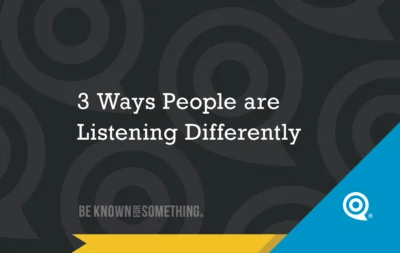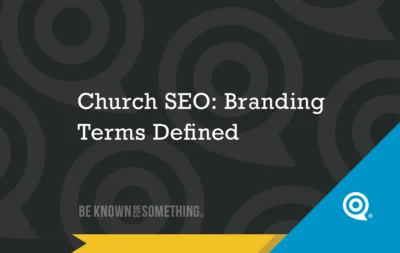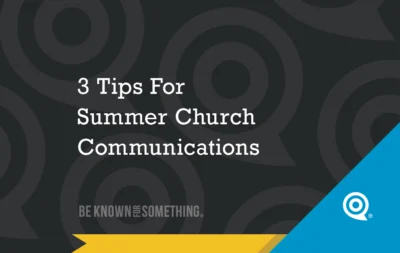
Yikes, People are Listening Differently (3 ways)
I remember years ago, on a summer vacation, my parents stopped near a lake to take a break from driving

More and more, people are reading less and less. Attention spans are being reduced where we barely pay attention to the entire sentence anymore. With a standard paragraph, we lose interest after the first line!
We no longer read the entire email. Nor read the entire contents on a web page. Studies even show we don’t really read long headlines. The world (ok, perhaps an overstatement) has stopped reading!
Yet the church continues to write, and write, and write.
A good preacher knows he has to stop preaching before the congregation stops listening. If no one is listening, why keep talking? The same can be said for your online and print communications. If people aren’t reading it, then why write it?
We’re busy people bombarded with messages. There’s no way we can understand every word that’s directed to us. It would simply take too long. And we don’t have the time. So we’ve developed a way to scan (a self-editing approach).
Many churches think they need to hire a great writer to multiply their content for their bulletins, newsletters, websites, and emails. From my years of experience working with hundreds of churches, I would confidently declare that the church is full of content!
Here are 4 things a church should look for in an editor:
The average church has lots of content being developed in dozens of areas; it just needs to be collected, shortened, and presented so that people are aware of it. That’s good church communications!

I remember years ago, on a summer vacation, my parents stopped near a lake to take a break from driving

Everyone likes to be found: that’s why Church SEO is important. Especially being found on Google (or Yahoo, Bing, etc.)

When I’ve taught Sunday School classes, I’m always amazed how attendance fluctuated very little each week yet we had different
Discover your thread®. Be Known for Something® relevant and needed. Pastor, control your church brand and be heard again.
– Discover Your Audience
– Build Your Brand
– Communicate & Be Heard
Communicate so your congregation & community pays attention to your website, social media, & email!
We'll never spam you. Unsubscribe anytime.
